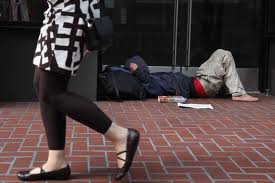Government Grants
Business Grants
Home Owner Programs
Federal Programs
About Us
Cooperative Agreements to Implement Zero Suicide in Health Systems (Short Title: Zero Suicide)
The Substance Abuse and Mental Health Services Administration (SAMHSA), Center for Mental Health Services (CMHS), is accepting applications for fiscal year (FY) 2017 Cooperative Agreements to Implement Zero Suicide in Health Systems (Short Title:
Zero Suicide).
The Zero Suicide model is a
comprehensive, multi-setting approach to suicide prevention in health systems.
The purpose of this program is to implement suicide prevention and intervention programs, for individuals who are 25 years of age or older, that are designed to raise awareness of suicide, establish referral processes, and improve care and outcomes for such individuals who are at risk for suicide.
Grantees will implement the Zero Suicide model throughout their health system.
Health systems that do not provide direct care services may partner with agencies that can implement the Zero Suicide model.
For communities without well-developed behavioral health care services, the Zero Suicide model may be implemented in Federally Qualified Health Centers or other primary care settings.
Zero Suicide).
The Zero Suicide model is a
comprehensive, multi-setting approach to suicide prevention in health systems.
The purpose of this program is to implement suicide prevention and intervention programs, for individuals who are 25 years of age or older, that are designed to raise awareness of suicide, establish referral processes, and improve care and outcomes for such individuals who are at risk for suicide.
Grantees will implement the Zero Suicide model throughout their health system.
Health systems that do not provide direct care services may partner with agencies that can implement the Zero Suicide model.
For communities without well-developed behavioral health care services, the Zero Suicide model may be implemented in Federally Qualified Health Centers or other primary care settings.
Related Programs
Substance Abuse and Mental Health Services_Projects of Regional and National Significance
Department of Health and Human ServicesWho's Eligible
Obtain Full Opportunity Text:
Cooperative Agreements to Implement Zero Suicide in Health Systems (Short Title: Zero Suicide)
Additional Information of Eligibility:
Eligible applicants are statutorily limited to: • States, District of Columbia, and U. S. Territories health agencies with mental health and/or behavioral health functions; • Indian tribe or tribal organization (the term ‘Indian tribe’ and ‘tribal organization’ are defined in section 4 of the Indian Self-Determination and Education Assistance Act.); • Community-based primary care or behavioral health care organizations; • Emergency departments; or • Local public health agencies.
A tribe, as defined at 25 U.S.C.
§ 1603(14), refers to any Indian tribe, band, nation, or other organized group or community, including any Alaska Native village or group or regional or village corporation as defined in or established pursuant to the Alaska Native Claims Settlement Act (85 Stat.
688) [43 U.S.C.A.
§ 1601 et seq.], which is recognized as eligible for the special programs and services provided by the United States to Indians because of their status as Indians.
A tribal organization, as defined at 25 U.S.C.
§ 1603(26), is the recognized governing body of any Indian tribe; any legally established organization of Indians which is controlled, sanctioned, or chartered by such governing body or which is democratically elected by the adult members of the Indian community to be served by such organization and which includes the maximum participation of Indians in all phases of its activities: Provided, that in any case where a contract is let or grant made to an organization to perform services benefiting more than one Indian tribe, the approval of each such Indian tribe shall be a prerequisite to the letting or making of such contract or grant.
An Urban Indian Organization, as defined at 25 U.S.C.
§ 1603(29), operating pursuant to a contract or grant with the Indian Health Service is a nonprofit corporate body situated in an urban center, governed by an urban Indian controlled board of directors, and providing for the maximum participation of all interested Indian groups and individuals, which body is capable of legally cooperating with other public and private entities for the purpose of performing the activities described in [25 U.S.C § 1653(a)].
Note: SAMHSA released FY 2017 Funding Opportunity Announcement SM-17-007 addressing suicide prevention entitled “Cooperative Agreements to Implement the National Strategy for Suicide Prevention (Short title: National Strategy Grants)”.
Applicants who have submitted an application for National Strategy Grants may also apply for a Zero Suicide grant.
However, an applicant organization may only receive one award: either a National Strategy grant or a Zero Suicide grant.
If both applications are in the fundable range, applicants will receive the Zero Suicide award.
Full Opportunity Web Address:
Contact:
Agency Email Description:
Agency Email:
FOACMHS@samhsa.hhs.gov
Date Posted:
2017-05-18
Application Due Date:
2017-07-18
Archive Date:
2017-08-17
Social Entrepreneurship
Spotlight
This Social Innovation Helps Prevent Bed Sores in Wheelchair Users

Co-founders William Mann and David Mravyan devised the Sensimat during a mandatory project for their MBA at the Richard Ivey School of Business in Canada. Sensimat is a device that helps manage and assess pressure among wheelchair users.

